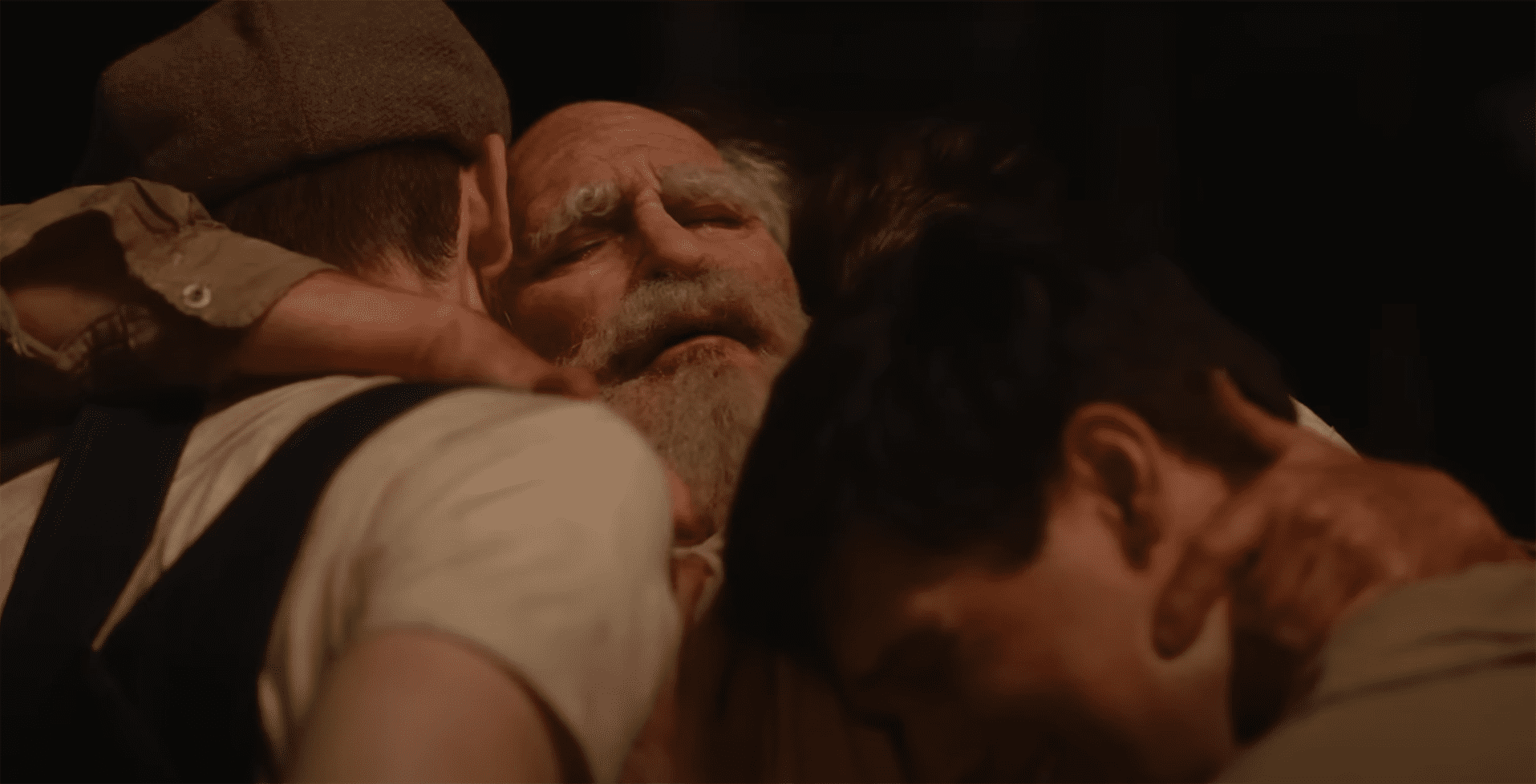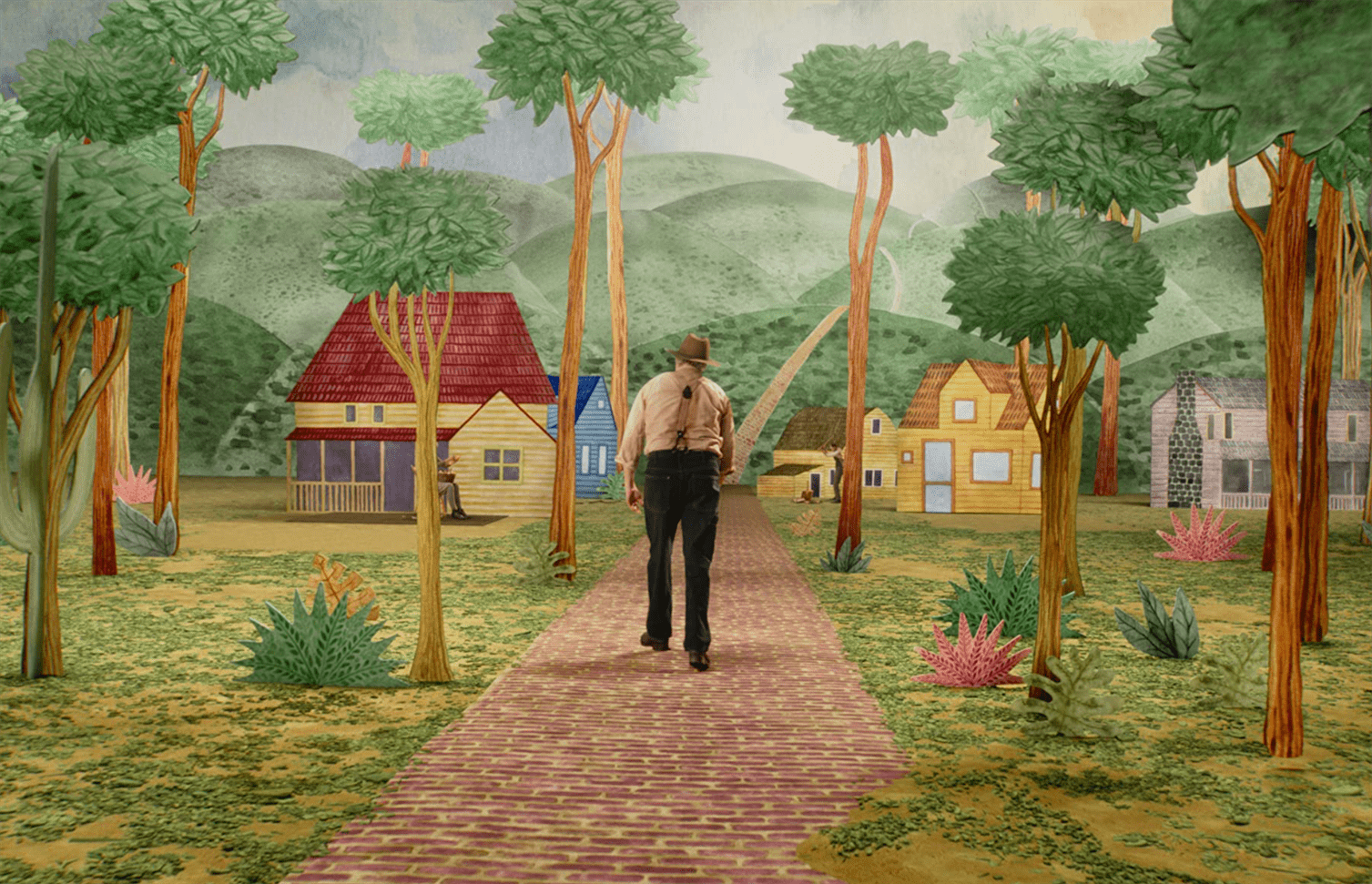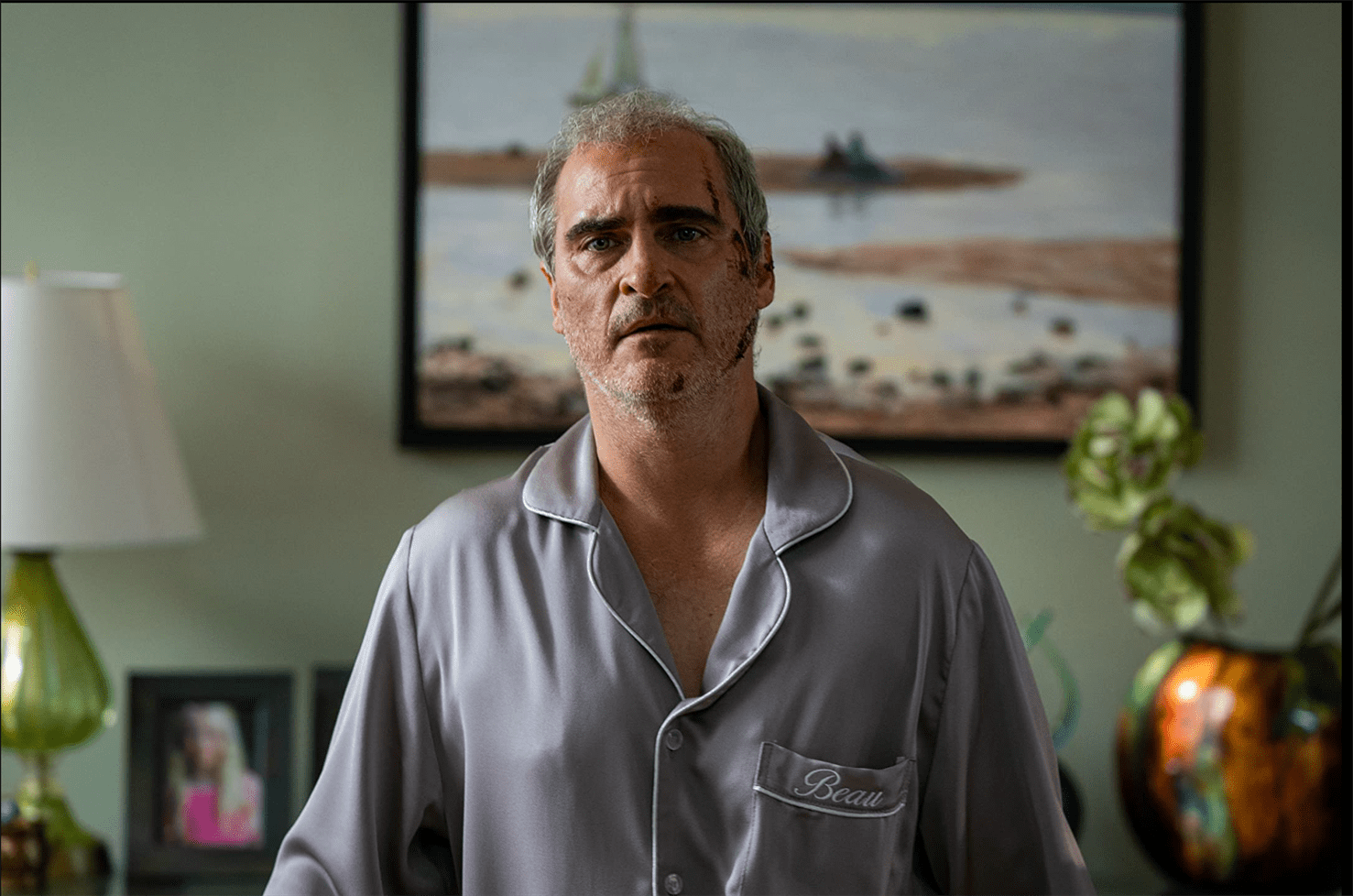From the acclaimed director Ari Aster, A24’s “Beau Is Afraid” is an ambitious take on the horror convention as well as storytelling. The film is unlike anything Aster has done before; that includes the famous “Hereditary” and “Midsommar.”
Previously known as “Disappointment Blvd,” the film follows Beau (Joaquin Phoenix) and his journey home to visit his mother (Patti LuPone). Beau is a very complicated man with multiple layers of anxiety bursting out of him. He lives in a dicey neighborhood with dead bodies casually laying on the ground, and crime is just an everyday thing. As he prepares for his flight, Beau’s trip home gets derailed through means of chaos. On his alternative route, Beau encounters questionable strangers that either help or push him toward the verge of madness. Ultimately, Beau learns the truth about his insecurities and fears as his journey reaches close to home.
One of the best technical aspects of Aster’s films is the chilling sound designs and scores; they are a prevalent achievement of Aster’s vision as seen in his other films. The sounds and noises are vital to the story as they create a certain weariness and dread for the audience to experience. Right at the beginning, the sound designs already pull the audience into Aster’s uncomfortable world, almost leaving them no room to tune out the uneasiness. The score only amplifies the anxiety the main character feels, even though the effect is superbly transferrable to the audience.

The film never stops to blur the line between reality and chaos.
Photo courtesy of A24
Visually speaking, Aster still excels in his filmmaking ability without losing any steam. Some of the transitions are nail-bitingly genius as they drive the force of insanity into the frame. His usage of low light and shadows really deliver a fear-inducing sensation. There are no actual jump scares, but the underlying feeling of insanity is consistent throughout. The fine line between reality and madness is extremely thin, almost interchangeable in the film — a masterful effect coming from Aster.

The film taps into human insanity to create an anxiety-inducing narrative.
Photo courtesy of A24
There is a sequence in the middle of the film where the visual shifts the film’s overarching atmosphere. The cooperation between live-action and animation really hooks the audience in as the sequence tells its own story. The level of detail, vibrant colors and gentle effects of stop-motion animation impact the watching experience as if it is a different film. The bright visual does act as breathing room for viewers considering the events happening before are horrifically hysterical.

The visuals are an outstanding achievement as it is a great combination of live-action and stop-animation.
Photo courtesy of A24
Aster also smartly spreads many motifs and symbolism throughout the film. Though some of them are not very apparent, or even accreted, they are still a niche element that further theorizes the film’s identity.
The dark humor contributes a quick relief as the film unapologetically dives into Beau’s anxiety and his past, including his crush from childhood, Elaine (Parker Posey). Even though the film is sometimes filled with laughable moments, the dreadfulness never leaves the core.
The supporting cast plays extremely well as the catalyst for Beau’s insecurities. Nathan Lane and Amy Ryan complement the film’s sinister nature as they dress their comedic persona with unyielding craziness. However, the best supporting spotlight is LuPone’s disdainful performance as a mother to Beau. Her demeanors are pitch-perfect as this cold parental figure, playing such a dynamic, unhinged person while maintaining a coolness of sanity. Truly, she is a force of nature.

The film is smartly filled with dark humor that slowly drifts into nightmarish horror.
Photo courtesy of A24
Of course, Phoenix is still the true star of the show, a testament to Aster’s unmatched talent for casting his leads. As the titular character, Phoenix’s facial expressions are the key to his brilliant performance. He displays such fear and anxiety about everything on the journey to the point where the audience just becomes hopeless for him. Phoenix does not disappoint when he is given a powerful, character-driven script as he embodies Beau completely. He sometimes goes even beyond the page and delivers powerful moments, especially near the end. Mixing with the film’s humor, Phoenix is considerably one of the most talented actors in the industry as he adroitly demonstrates his acting range.
With all that being said, the film might be too ambitious as it packs so many themes about identity and fear that it might be overwhelming to viewers. There are also a lot of unanswered questions about certain characters and their conclusion as the credits roll.
Still, “Beau Is Afraid” ultimately continues to bolster Aster’s reputation as a prodigious horror visionary that essentializes amazing world-building designs, unconventional narrative risks and remarkable performances.



